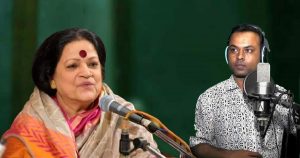Both jailed members of Russian punk band Pussy Riot, whose incarceration sparked a global outcry, have been released under an amnesty law.
Nadezhda Tolokonnikova and Maria Alyokhina dismissed the amnesty as a publicity stunt before the Sochi Winter Olympics in February. They both promised to continue their vocal opposition to the government. The women were jailed in August 2012 after performing a protest song in Moscow’s main cathedral. The act was seen as blasphemous by many Russians, and was condemned by the Orthodox Church. But their conviction for “hooliganism motivated by religious hatred” was criticised by rights groups, anti-Putin activists and foreign governments. The amnesty passed last week aimed to free some 20,000 prisoners. And in a separate move, President Vladimir Putin pardoned former oil tycoon Mikhail Khodorkovsky, who was once Russia’s richest man, on humanitarian grounds. He was freed after more than 10 years in prison for fraud and tax evasion and has since promised to stay out of politics. ‘Totalitarian machine’ Both Pussy Riot members said their anti-government stance had not softened, and both promised to form a human-rights group to fight for prison reform. Tolokonnikova shouted “Russia without Putin” as she emerged from a prison hospital in the Siberian city of Krasnoyarsk. The 24-year-old said her time in jail had not been wasted, adding: “I became older, I saw the state from within, I saw this totalitarian machine as it is. “Russia is built on a penal colony. That is why it is so important to change the prison system in order to change Russia.” Alyokhina, released in the city of Nizhny Novgorod, 400km (280 miles) east of Moscow, told Russian TV that the amnesty was “a profanation”. “If it were possible, if I had had a choice, I would have stayed in prison without a doubt,” she said. They were due to be freed in March. But the amnesty law covered women who had children to look after. Both women have children, and so were freed early. They were convicted after performing an obscenity-laced song called Punk Prayer in Moscow’s Christ the Saviour cathedral in February 2012. The song was heavily critical of the Orthodox Church’s support for the president, calling on the Virgin Mary to “throw Putin out”. A third Pussy Riot protester, Yekaterina Samutsevich, was also jailed, but was released on appeal in October 2012. Charges against 30 people arrested while taking part in a Greenpeace protest at a Russian Arctic offshore oil rig may also be dropped later this week under the amnesty law. The group – mostly foreign activists – have been charged with hooliganism. – BBC Entertainment




